BYD Seal vs Honda HR-V – Differences & prices compared
Compare performance, boot space, consumption and price in one view.
Find out now: which car is the better choice for you – BYD Seal or Honda HR-V?
The BYD Seal (Sedan) comes with a Electric engine and Automatic transmission. In comparison, the Honda HR-V (SUV) features a Full Hybrid engine with Automatic transmission.
When it comes to boot capacity, the BYD Seal offers 400 L, while the Honda HR-V provides 319 L – depending on how much space you need. If you’re looking for more power, decide whether the 530 HP of the BYD Seal or the 131 HP of the Honda HR-V suits your needs better.
In terms of consumption, the values are 15.40 kWh per 100 km for the BYD Seal, and 5.40 L for the Honda HR-V.
Price-wise, the BYD Seal starts at 40300 £, while the Honda HR-V is available from 29700 £. Compare all the details and find out which model fits your lifestyle best!
BYD Seal
The BYD Seal represents a sleek fusion of innovative technology and stylish design, setting it apart in the competitive electric vehicle market. With its aerodynamic silhouette and premium interior finishes, the car offers a driving experience that is both comfortable and exhilarating. Enthusiasts are particularly impressed by the seamless integration of advanced features that prioritise safety and convenience.
details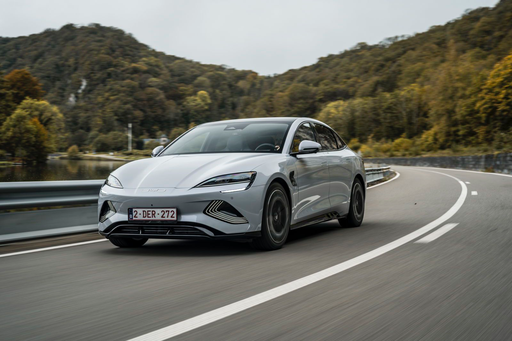 @ press.bydauto.be
@ press.bydauto.be
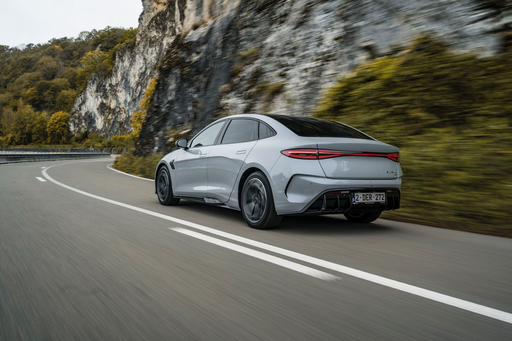 @ press.bydauto.be
@ press.bydauto.be
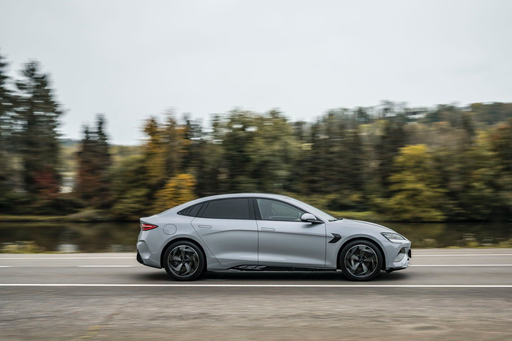 @ press.bydauto.be
@ press.bydauto.be
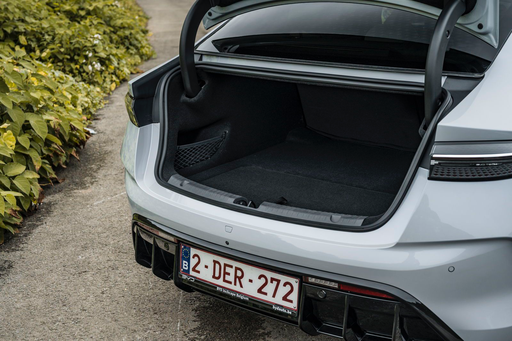 @ press.bydauto.be
@ press.bydauto.be
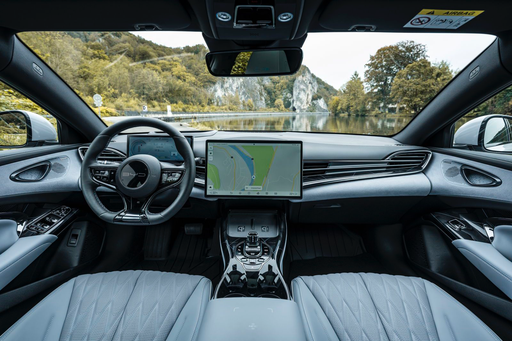 @ press.bydauto.be
@ press.bydauto.be
Honda HR-V
The Honda HR-V impresses with its sleek design, combining a dynamic exterior with a comfortable and spacious interior. This versatile compact SUV offers a smooth and responsive driving experience, making it ideal for both city commuting and weekend adventures. Equipped with advanced safety features and technology, the HR-V ensures a connected and secure journey for all passengers.
details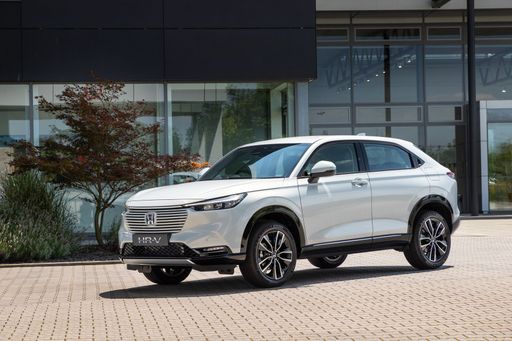 @ hondanews.eu
@ hondanews.eu
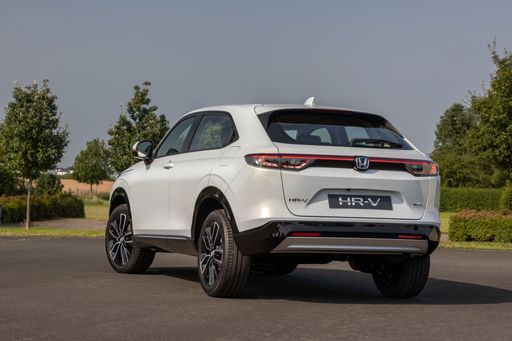 @ hondanews.eu
@ hondanews.eu
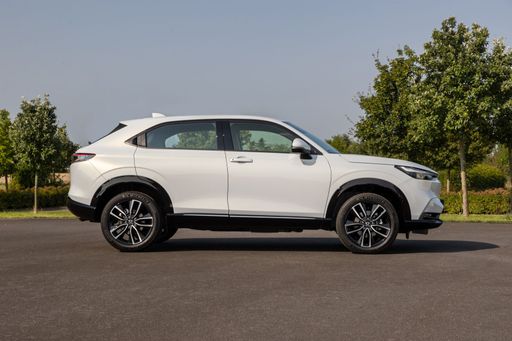 @ hondanews.eu
@ hondanews.eu
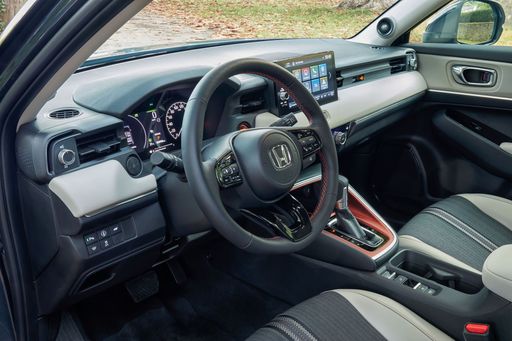 @ hondanews.eu
@ hondanews.eu

|

|
|
|
|
Costs and Consumption |
|
|---|---|
|
Price
40300 - 43700 £
|
Price
29700 - 35400 £
|
|
Consumption L/100km
-
|
Consumption L/100km
5.40 L
|
|
Consumption kWh/100km
15.4 - 18.2 kWh
|
Consumption kWh/100km
-
|
|
Electric Range
460 - 570 km
|
Electric Range
-
|
|
Battery Capacity
-
|
Battery Capacity
-
|
|
co2
0 g/km
|
co2
122 g/km
|
|
Fuel tank capacity
-
|
Fuel tank capacity
40 L
|
Dimensions and Body |
|
|---|---|
|
Body Type
Sedan
|
Body Type
SUV
|
|
Seats
5
|
Seats
5
|
|
Doors
4
|
Doors
5
|
|
Curb weight
1907 - 2185 kg
|
Curb weight
1452 kg
|
|
Trunk capacity
400 L
|
Trunk capacity
319 L
|
|
Length
4800 mm
|
Length
4355 mm
|
|
Width
1875 mm
|
Width
-
|
|
Height
1460 mm
|
Height
1582 mm
|
|
Payload
446 - 473 kg
|
Payload
418 kg
|
Engine and Performance |
|
|---|---|
|
Engine Type
Electric
|
Engine Type
Full Hybrid
|
|
Transmission
Automatic
|
Transmission
Automatic
|
|
Transmission Detail
Reduction Gearbox
|
Transmission Detail
-
|
|
Drive Type
Rear-Wheel Drive, All-Wheel Drive
|
Drive Type
Front-Wheel Drive
|
|
Power HP
231 - 530 HP
|
Power HP
131 HP
|
|
Acceleration 0-100km/h
3.8 - 7.5 s
|
Acceleration 0-100km/h
10.6 - 10.8 s
|
|
Max Speed
180 - 220 km/h
|
Max Speed
170 km/h
|
|
Torque
360 - 670 Nm
|
Torque
253 Nm
|
|
Number of Cylinders
-
|
Number of Cylinders
4
|
|
Power kW
170 - 390 kW
|
Power kW
96 kW
|
|
Engine capacity
-
|
Engine capacity
1498 cm3
|
General |
|
|---|---|
|
Model Year
2023 - 2025
|
Model Year
2025
|
|
CO2 Efficiency Class
A
|
CO2 Efficiency Class
D
|
|
Brand
BYD
|
Brand
Honda
|
BYD Seal
The BYD Seal: An Electrifying Presence on the Road
Amidst the growing popularity of electric vehicles (EVs), the BYD Seal stands out as a compelling choice. With its sleek saloon design and a plethora of cutting-edge features, this model holds its own in the competitive market of eco-conscious automobiles.
Technical Specs that Speak Volumes
The BYD Seal comes in two key variants, each offering a distinct driving experience yet retaining a common emphasis on performance and efficiency. The power output ranges from a robust 313 PS to an exhilarating 530 PS, ensuring that whether you choose the rear-wheel drive or the all-wheel-drive option, you won't be short of thrills.
Performance enthusiasts will also appreciate the remarkable acceleration capabilities; the Seal can go from 0 to 100 km/h in as little as 3.8 seconds. Complementing its acceleration is its astounding maximum torque, reaching up to 670 Nm, making it adept at handling various driving conditions.
Efficiency Meets Innovation
BYD has engineered the Seal to optimise energy consumption without compromising on performance. The car boasts a commendable energy consumption range of 16.6 - 18.2 kWh/100km, reflecting its efficiency-focused design. Coupled with an impressive electric range of up to 570 km, the Seal is poised for longer journeys without frequent recharging interruptions.
Design and Comfort
The BYD Seal's aesthetic appeal is underscored by its sleek saloon body and precise dimensions: 4800 mm in length, 1875 mm in width, and standing at a height of 1460 mm. These dimensions create a dynamic yet spacious presence on the road, ensuring both an aerodynamic performance and a comfortable interior for up to five passengers.
Inside, the Seal is designed with driver and passenger comfort in mind, featuring a well-crafted interior and advanced technology to enhance the driving experience. The boot offers 400 litres of space, catering to practical needs without compromising on style.
Innovative Features for a Modern Drive
The Seal doesn’t just rely on its electric credentials to make an impact. BYD integrates a host of modern technologies and safety features, ensuring that the driving experience is both innovative and secure. The inclusion of a single-speed reduction gear contributes to a smooth driving experience, enabling efficient transitions in speed.
Safety is further assured with the Seal's high CO2 efficiency rating of class A, underlining its efficacy as a sustainable mode of transport that does not contribute to emissions. Given these progressive features, it's clear that the BYD Seal aligns with the evolving expectations of modern drivers looking for an eco-friendly yet high-performing vehicle.
Conclusion: Future-Ready Efficiency
With a competitive price range starting from €44,990, the BYD Seal represents excellent value for those seeking a blend of performance, efficiency, and modern technology. As sustainable transportation becomes a priority globally, the Seal positions itself as a pioneering force in the electric vehicle market, offering a future-ready driving solution that can meet the needs of today's discerning car buyers.
Honda HR-V
Exploring the Honda HR-V: A Testament to Innovation
The Honda HR-V epitomises the harmonious blend of SUV practicality and hybrid innovation. This remarkable model offers a compelling choice for those seeking a vehicle that is as environmentally conscious as it is versatile. Let's delve into the technical prowess and innovative features that make the HR-V a standout in its class.
Powerful Yet Efficient Hybrid Technology
At the heart of the Honda HR-V is its 1.5 i-MMD e:HEV full-hybrid powertrain. This advanced system delivers a robust 130 PS (96 kW) while maintaining an impressive fuel consumption of just 5.4 L/100km. The HR-V achieves this through its continuously variable transmission (CVT), which optimises efficiency by adjusting seamlessly to driving conditions. The combination results in a smooth yet responsive drive, marking a significant achievement in hybrid technology.
Design and Practicality
The HR-V seamlessly blends elegant design with practical functionality. Measuring 4340 mm in length and 1582 mm in height, it provides ample cabin space while maintaining a compact footprint. Inside, the HR-V comfortably seats five passengers, ensuring a pleasant journey for both driver and passengers. The boot space, ranging from 320 to 335 litres, offers flexibility for various cargo needs.
Performance and Responsive Handling
With a maximum torque of 253 Nm, the HR-V delivers remarkable performance. Its front-wheel-drive system paired with a CVT offers a refined driving experience. The model is capable of accelerating from 0 to 100 km/h in a respectable 10.6 to 10.7 seconds, and can reach a maximum speed of 170 km/h. Despite its performance capabilities, the HR-V remains an eco-conscious choice with CO2 emissions of 122 g/km.
Comfort and Sophisticated Interiors
The Honda HR-V is available in three distinct trims - Advance e-CVT, Advance Style e-CVT, and Elegance e-CVT, each offering a host of features to enhance comfort and convenience. From the quality of materials to the thoughtful layout of controls, every aspect of the HR-V’s interior is designed to offer a superior driving experience. Furthermore, its fuel tank capacity of 40 litres ensures you'll spend more time on the road and less at the pump.
Cost Efficiency and Environmental Consideration
Beyond its technical specifications, the Honda HR-V promises efficient running costs. The estimated monthly cost ranges from €1002 to €1064, with the cost per kilometre ranging between 40.1 to 42.6 cents. This makes it not only an environmentally friendly choice but an economically sensible one as well, especially for those cognisant of their carbon footprint. It carries a CO2 efficiency class of D, affirming its commitment to reduced emissions.
Final Thoughts
The Honda HR-V stands as a testament to how modern SUVs can be both innovative and practical. Its combination of hybrid technology, responsive power, and thoughtful functionality make it a compelling choice for those in search of sustainability without compromising on performance or comfort. As Honda continues to push the boundaries of what's possible, the HR-V ensures you are at the forefront of automotive innovation.
Which drive types are available for the BYD Seal?
Available as .
The prices and data displayed are estimates based on German list prices and may vary by country. This information is not legally binding.
